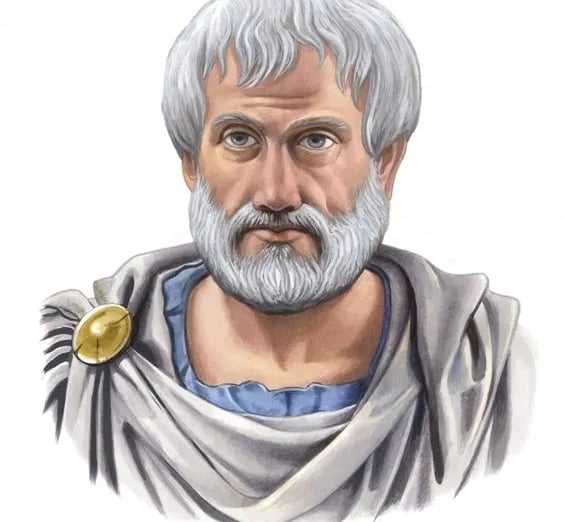UPSC Optional PSIR: Comment: For, no law or ordinance is mightier than knowledge (Plato)
Can knowledge be above law? Can wisdom be more just than democracy? Plato believed that only those who know what justice truly is should rule. In this post, we explore Plato's bold claim—“No law or ordinance is mightier than knowledge”—and how it continues to shape political debates on expert rule, democracy, justice, and governance. Learn how this Platonic ideal influences modern technocracy, judicial review, Rawlsian justice, and clashes with feminist, postmodern, and democratic theories. A must-read for anyone preparing for UPSC Mains, PSIR, or exploring the ethics of governance.
PSIR
7/27/20252 min read


🧠 Plato’s Political Philosophy: Knowledge as the Supreme Law
Plato’s famous assertion—“No law or ordinance is mightier than knowledge”—sits at the heart of his political thought. For Plato, philosophical wisdom (episteme) should guide political decision-making, not conventional rules (nomos) or public opinion (doxa).
Laws, for him, are second-best tools—useful only when true philosophers are absent.
Only those who have access to truth—through reason and understanding of Forms, especially the Form of the Good—are fit to rule.
🔍 Bottom line: Knowledge > Law, Philosopher > Politician
🧱 Plato’s Epistemology and the Case for Philosopher-Kings
At the core of this view lies the Theory of Forms—Plato’s belief in a higher, eternal reality accessible only through rational insight.
In the Republic, Plato distinguishes between opinion (doxa) and knowledge (episteme).
Only philosophers, trained in dialectics and reason, can perceive justice in its true form.
Hence, Plato proposes a cognitive meritocracy where the most knowledgeable—not the most popular—rule the state.
📖 Allegory of the Cave: The philosopher ascends from ignorance to enlightenment, then returns to govern the blind masses.
⚖️ Knowledge vs. Legal Positivism & Democratic Theory
This Platonic vision challenges modern legal and democratic thought:
⚖️ Knowledge vs. Legal Positivism & Democratic Theory — Plato’s Challenges
1. Legal Positivism (Austin, Hart):
Says a law is valid if made through correct procedures.
Plato challenges this by arguing that laws must reflect truth and justice, not just follow procedures.
2. Democratic Consent (Locke, Rousseau):
Belief that power is legitimate if it comes from the people’s will.
Plato counters that most people lack true knowledge of justice, so their consent doesn’t guarantee good laws.
3. Rawls’ Veil of Ignorance:
Justice comes from reasoning without knowing personal biases.
Plato’s idea is similar—truth comes from rational, detached thought, like that of the philosopher.
🧭 Contemporary Relevance of Plato’s Maxim
Even today, Plato's idea that “wisdom should guide governance” continues to stir debate.
🏛️ Technocracy & Epistocracy:
Jason Brennan argues for competence-based voting—where only the informed should decide.
Expert panels and judicial review often override elected decisions in complex domains (e.g. climate change, public health).
⚖️ Judicial Review & Constitutional Morality:
Courts interpret higher principles, echoing Plato’s idea of philosopher-guided justice.
Ambedkar’s stress on constitutional morality over majoritarian will aligns with this.
🧩 Critiques of Plato’s Intellectualism
Not everyone agrees with Plato’s idea of elite rule:
🧕 Feminist Critique (Susan Okin, Carol Gilligan):
Plato's abstract rationalism ignores lived experiences, care ethics, and empathy.
It devalues emotional intelligence and community wisdom.
🌀 Postmodern Critique (Foucault):
Claims to “universal truth” can become tools of hegemonic control.
Power and knowledge are intertwined; claiming “truth” often means justifying domination.
🔄 Modern Synthesis: Can Wisdom and Democracy Coexist?
Today’s thinkers try to balance knowledge and participation:
🗣️ Deliberative Democracy (Habermas):
Advocates reasoned, inclusive dialogue over expert-only decision-making.
Creates “ideal speech situations” where best arguments—not loudest voices—prevail.
🌱 Capabilities Approach (Amartya Sen, Martha Nussbaum):
Stresses combining expertise with empowerment, ensuring freedom and voice for all.
✅ Conclusion: Knowledge, Law, and the Democratic Dilemma
Plato’s idea that “No law is mightier than knowledge” invites deep reflection on the role of wisdom in governance. While expertise is essential in complex modern societies, excluding the people entirely contradicts the ideals of liberty and accountability.
⚖️ The real challenge:
→ How do we design systems where truth informs law, but power stays accountable?
→ How do we ensure that knowledge serves, not rules, democracy?
Plato’s vision remains powerful—but must evolve within the context of pluralism, rights, and modern governance.